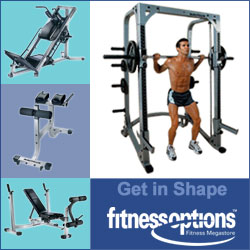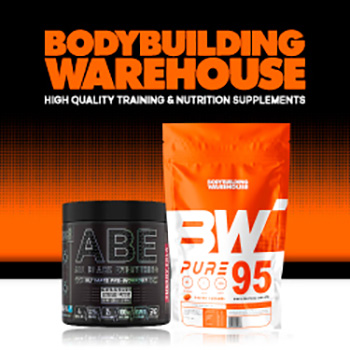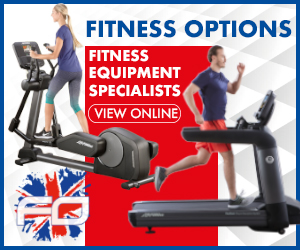
Elite Performance Nutrition
The difference between good results and exceptional progress often comes down to nutritional strategy rather than training intensity. By implementing targeted pre and post workout nutrition approaches tailored to your specific workout type, schedule, and goals, you can extract significantly more value from every training session. This is especially true when you focus on aspects of nutrition that drive elite performance. Remember that consistency trumps perfection. Finding an approach you can maintain long term will always outperform complex strategies that are abandoned after a few weeks. When striving for competitive nutritional strategies, a focus on elite performance nutrition can be beneficial. Start by implementing one improvement to your workout nutrition this week, whether that's proper pre-workout timing, strategic post workout recovery, or better hydration practices. Small, sustainable changes compound over time. They produce remarkable improvements in both performance and body composition. Precision Nutrition, a leading authority in sports nutrition, can help you further optimise your nutrition strategy with personalised plans that match your unique training needs.
Frequently Asked Questions
Should I eat if I work out early in the morning?
Yes, consuming at least some nutrition before morning workouts typically improves performance, especially for high intensity or prolonged sessions. If you can't tolerate solid food early in the morning, liquid options like a small protein shake with fruit or even a sports drink can provide essential energy without digestive discomfort. Those aiming for elite performance nutritional strategies should focus on easily digestible carbohydrates and moderate protein about 15-30 minutes before your session. For those who truly cannot eat before morning workouts, ensuring proper nutrition the night before becomes even more important. A balanced dinner with adequate carbohydrates helps maintain liver glycogen stores that provide energy during your morning session.
How long should I wait after eating to start my workout?
The ideal waiting period depends on meal size and composition. For larger meals containing significant fat and protein, allow 2-3 hours before intensive training. This prevents digestive discomfort and optimises performance. Moderate meals require about 1-2 hours of digestion time, while small, carbohydrate focused snacks can be consumed as little as 30 minutes before exercise. If you're particularly sensitive to exercise induced digestive issues, extend these waiting periods by 30-60 minutes. Focus on lower fibre, easily digestible options before training. For more tips on strategies for elite performance nutrition, check out these pre and post workout nutrition hacks.
Do I need protein powder to build muscle?
No, protein powder isn't essential for muscle building. Plenty of successful athletes build impressive physiques using only whole food protein sources. Protein supplements offer convenience rather than superior effectiveness compared to food sources like meat, dairy, eggs, or plant based proteins. The critical factor for muscle growth is consistent, adequate total protein intake (1.6-2.2g per kg of bodyweight daily) distributed across multiple meals. This is regardless of whether that protein comes from supplements or whole foods. Choosing a protein powder can complement an elite performance nutrition plan, but it's not necessary for results. Choose based on lifestyle factors like schedule constraints and food preferences. Do not believe it's necessary for results.
What should I eat if I'm trying to lose weight while building muscle?
• Prioritize lean protein sources (lean meats, egg whites, Greek yogurt) to support muscle preservation while in a caloric deficit
• Time carbohydrates primarily around your workouts when they're most efficiently used for energy rather than storage
• Include plenty of high volume, low calorie vegetables to maintain fullness while reducing overall calories
• Consider intermittent fasting approaches that concentrate eating windows around training times
• Focus on nutrient dense whole foods rather than processed options to maximize nutritional value per calorie, emphasising on elite performance nutrition.
Is it bad to exercise on an empty stomach?
Training fasted isn't inherently “bad,” but its appropriateness depends on your goals, workout type, and individual response. For low intensity activities like morning walks or light yoga, fasted training is perfectly acceptable for most people. It may provide modest benefits for fat utilisation. However, for high intensity training, strength work, or sessions lasting longer than 45-60 minutes, performance typically suffers significantly without pre-workout nutrition.
If fat loss is your primary goal, the marginal increase in fat oxidation during fasted training rarely compensates for the reduction in training intensity. The volume possible with proper fuelling must also be considered. The exception might be individuals specifically adapted to fasted training through consistent practice, such as those following long term intermittent fasting protocols. Even in these cases, many advanced athletes who train fasted still use essential amino acids or targeted supplements. This approach helps to mitigate muscle breakdown while maintaining the metabolic benefits of fasted training.
The best approach is to experiment with both fasted and fed training for your specific workout types. Monitor your performance, energy levels, and results. Many find a hybrid approach works well. Perhaps train fasted for certain low intensity sessions while ensuring proper nutrition before more demanding workouts that require peak performance. Remember that sustainable results come from approaches you can maintain consistently. So, your personal preference and lifestyle compatibility matter as much as theoretical optimisation, especially when aiming for aspects of elite performance through nutrition.






